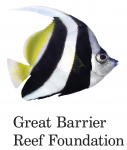
Photo © Joel Johnsson, DBCA
Effective stakeholder engagement—the process of informing, understanding, and responding to the concerns of anyone who may influence, or be influenced by, a management decision—is fundamental to effective planning and management. When done well, stakeholder engagement can provide valuable feedback which improves decision-making and builds public support for particular decisions.
In many cases, however, stakeholder engagement is treated as a ‘tick-the-box’ exercise, often in the form of a public consultation period which allows comment on a strategy or action which is already developed but does not provide meaningful opportunities for participants to shape the approach or priorities.
In this newly released case study, we share how local government officials meaningfully engaged their community to design a Resilience Strategy for the Ningaloo Coast in Western Australia through the Resilient Reefs Initiative. The Resilience Strategy aims to support and sustain Ningaloo’s coral reefs and the people who depend on them, and serves as an important step in building the trust, relationships, and support that will be required for ongoing management.
The Resilient Reefs Initiative is being delivered in Ningaloo by the Department of Biodiversity, Conservation, and Attractions (DBCA) in collaboration with the Great Barrier Reef Foundation, The Nature Conservancy’s Reef Resilience Network, Columbia University’s Center for Resilient Cities and Landscapes, Resilient Cities Catalyst, UNESCO and AECOM. The initiative is enabled by the BHP Foundation.




